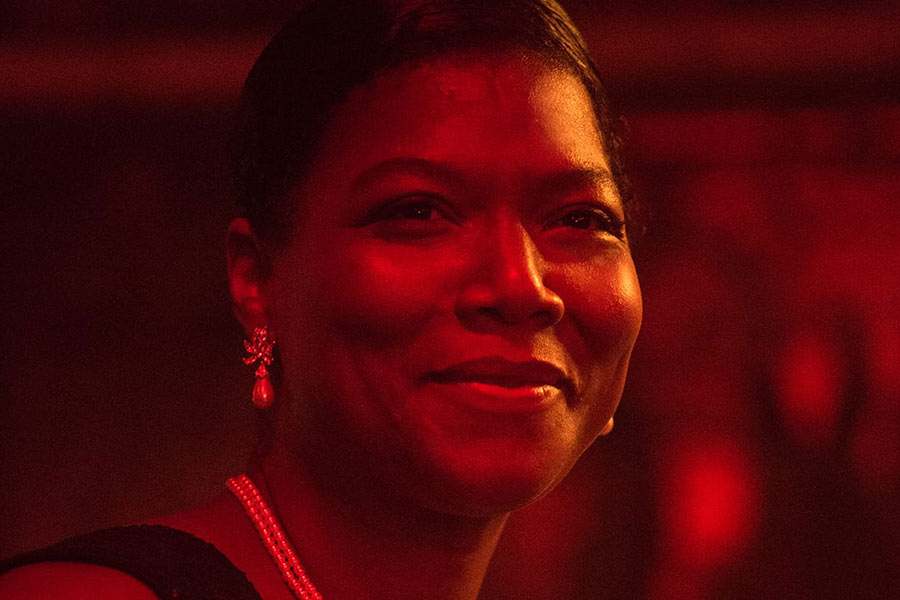Bessie Smith (1894-1937) was a hard-drinking, hard-loving singer-songwriter who became a musical superstar during the 1920s. She was a sold-out concert act who played to white and black audiences alike and was also a best-selling recording artist.
Smith didn’t just sing the blues, she felt them.
The Blues is a musical genre that originated in the African-American communities of the Deep South towards the end of the 19th century. A fusion of traditional African music and American folk tunes, The Blues was an expression of the anguish and pain of a people who lived hard lives in a country that despised them, and the genre became a staple of African-American culture at a time when discrimination was legal.
Smith, along with her mentor, Ma Rainey (1886-1939), were the undisputed standard bearers of The Blues.
Queen Latifah stars as Smith in HBO’s “Bessie,” while Oscar winner Mo’nique steals a few scenes as Rainey. Latifah also serves as the film’s executive producer.
Largely void of special effects, “Bessie” is a character-driven study of a real human being. The script, co-authored by director Dee Rees and the late playwright Horton Foote, examines the life of Smith and allows the audience to peek inside the lives of those around her. When watching the film, viewers will get to know who these people really were and will understand their motivations.
Latifah is sensational as a woman who took no prisoners. Smith fearlessly stands up to her abusive sister, to a man who tries to force himself on her and to a KKK group that tries to interrupt one of her concerts. When she sings, she takes her audience on a journey inside her sometimes-tortured soul. It’s a mesmerizing roller-coaster ride that tells the story of Smith’s life while also explaining the origins of The Blues.
Latifah dives into the role with gusto, singing her heart out, expressing her rage and her sorrow as she passionately loves men and women alike — the film does not shy away from Smith’s bisexuality or from her voracious sexual appetite. She was a woman who owned her sexuality.
Mo’nique nearly manages to steal the film away from the star. She’s equally intense as the butt-kicking Ma Rainey, who mentors Smith, then flies into a fit of rage when Smith becomes the bigger star. And yet when Smith is at her lowest ebb years later, it’s Rainey who takes her in.
Mo’nique is particularly memorable when Rainey is seen in concert. She struts her stuff across the stage, wearing a tight gown. As she sings, she fans herself with a huge flock of feathers, shaking her butt in perfect unison with the music. It’s a highly stylized performance, specific to a time and place long past. Mo’nique and Latifah recreate the era beautifully.
Latifah, who began her career as a rapper, has since branched out and made a name for herself as an interpreter of various musical styles. Her voice is strong, and she proves herself to be more than up to the challenge of recreating Smith’s signature style.
The film is sumptuously produced. The lush production design, gorgeous period costumes and hairstyles will take viewers back to a time that is now nearly a century behind us. It’s an unforgettable journey with an African-American woman who told the world to kiss her ass at a time when “colored folks knew their place.”
“Bessie” premieres May 16 on HBO. The film will be available on all HBO channels through June. Visit HBO.com for schedule details. It will be available at HBO On Demand May 17 and will also be available online.
